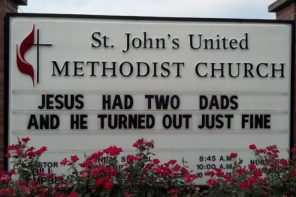Recently a religious book club told me they were taking a pass on reading my book, Wage Theft in America: Why Millions of Working Americans Are Not Getting Paid—And What We Can Do About It, because it wasn’t theological enough. At first I shrugged it off, but it struck a nerve.
It would have been fine for them to say the book was boring, they didn’t like how it was written, didn’t like the subject matter, or any number of other reasons. But to say that the book wasn’t theological enough reminded me of how narrow definitions of God, theology, and religious practice are in affluent America.
The word “theology” comes from two Greek words: theos for God and logos for discourse or explanation. So theology is discourse about or explanation of God. In more common parlance, we refer it as the study of God and religion. We think of theology as a course of study you take in seminary. Theology is trying to understand God.
In the Abrahamic traditions, the two most important commandments—guidelines for life—are to love God and love your neighbor as yourself. Jesus clearly said that when we care for those who are hungry or without clothes (clearly referring to poor people), we have cared for Jesus. The care of our neighbors is a fundamental principle, a core concern, for God. It would be hard to study or explain God without recognizing and studying this core principle.
Most poor people in the United States (and the world) either don’t have jobs or don’t have jobs that pay enough. Work and how one is paid for that work will determine if your family has enough food, adequate shelter, and educational opportunities.
For low-wage workers in the United States, one out of four is not paid the minimum wage, as required by law. For those who work more than 40 hours per week, and thus should be paid time-and-a-half for hours worked over 40, three-fourths of low-wage workers aren’t paid overtime. The average low-wage worker loses $2,600 in unpaid wages due to wage theft.
Stealing wages from workers hurts families. It is morally wrong. Why is this not a theological matter? Employers who care about their workers, those who love their neighbors as themselves, pay workers fairly.
The separation of theology and discussions about God from major economic concerns facing poor people in the nation puts a wedge between faith and life.
Some seminarians I supervised once interviewed a sweatshop owner who was active in his congregations. They asked him how he separated his faith life from his treatment of employees. He replied, “I like to keep my faith out of business decisions.”
Keeping faith out of business is the logical extension of separating concern for workers from theological conversations. Separating matters of faith and conversations about God into private realms, or squeezing them into an hour per week of worship, diminishes the value, scope and reach of faith. This closet view of religion and faith has persuaded too many that what they do on Sunday (or Friday or another day) has no impact on what they do on Monday. No wonder workers are under attack.
How workers are treated is a deeply theological matter.




